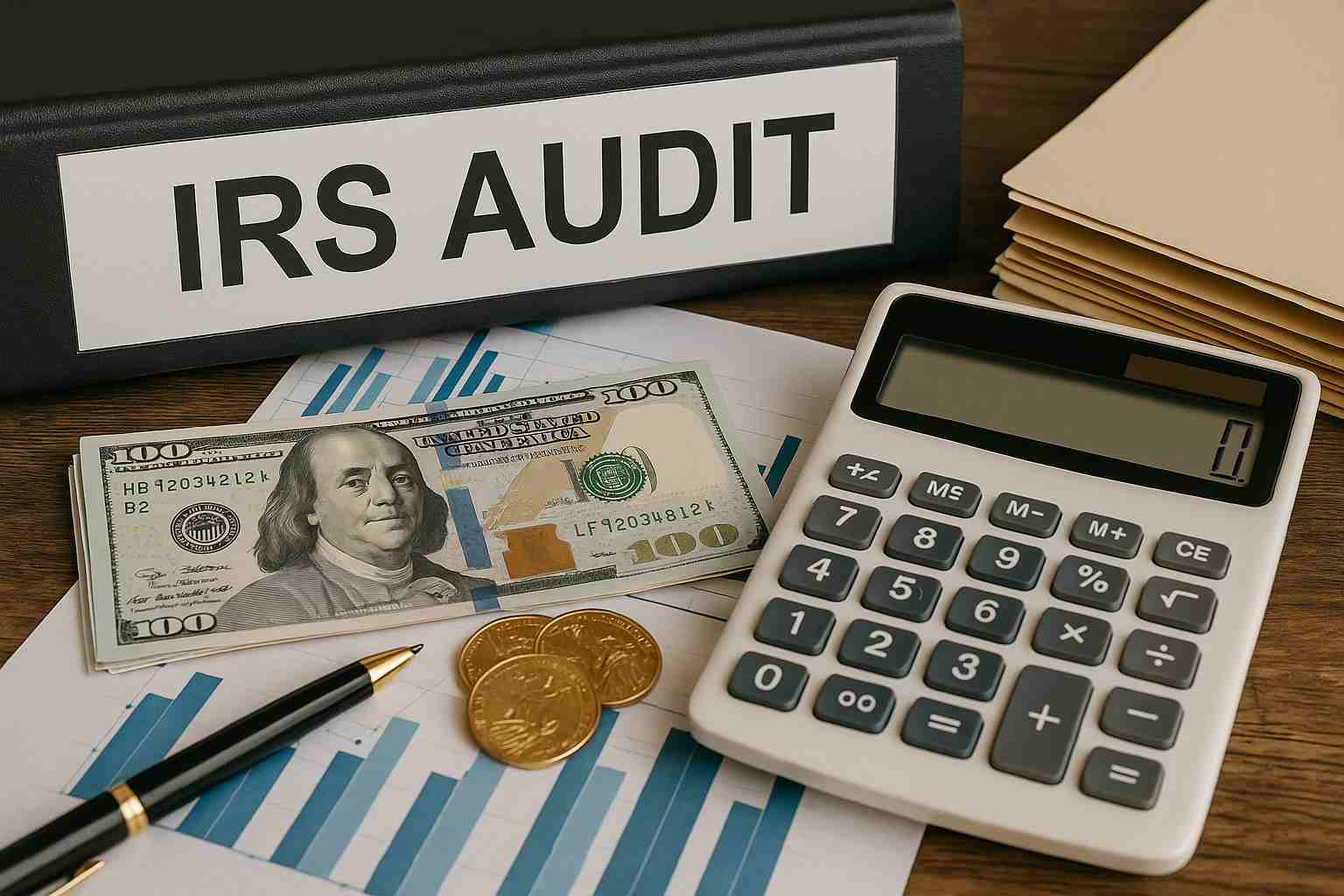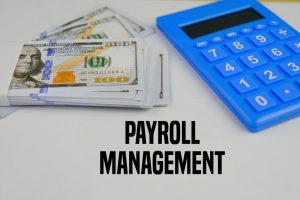For small business owners in the United States, few things are more stressful than receiving a letter from the Internal Revenue Service (IRS) announcing an audit. While audits aren’t always a sign of wrongdoing, they can be time-consuming, costly, and nerve-wracking. The good news is that most IRS audits happen because of specific red flags that signal potential issues. Understanding these triggers helps you maintain better tax compliance and avoid unnecessary stress.
In this guide, we’ll break down the top IRS audit USA triggers, explain why they matter, and provide practical CPA audit tips to help you steer clear of common small business tax errors.
Why the IRS Audits Small Businesses
The IRS conducts audits to ensure businesses are reporting income accurately and paying the correct amount of taxes. Most audits are triggered by discrepancies or unusual activity that stands out from typical filings. While only about 0.38% of small businesses are audited annually, those with high revenue, complex deductions, or inconsistent filings are more likely to be targeted. Being proactive with tax compliance is the best way to reduce your risk.
1. Underreporting Income
The IRS compares the income you report with records from payment processors, banks, and vendors. Even a small discrepancy can trigger an audit. For example, failing to report all income from freelance work, cash transactions, or third-party payment platforms like PayPal may raise flags.
Solution: Keep meticulous income records and cross-check them with 1099 forms and bank deposits. Automating your bookkeeping process can help prevent small business tax errors that lead to audits.
2. Excessive Business Expense Deductions
Claiming higher-than-average deductions for your industry can look suspicious. While legitimate deductions are your right, claiming too many expenses—or classifying personal purchases as business-related—can invite an IRS review.
CPA audit tips:
-
Deduct only legitimate business expenses.
-
Maintain detailed receipts and documentation.
-
Use accounting software to categorize expenses correctly.
3. Home Office Deduction Misuse
The home office deduction is a common source of scrutiny. Many small business owners claim it incorrectly, assuming that working from home automatically qualifies them. The IRS only allows this deduction if you use a space exclusively and regularly for business purposes.
To avoid triggering an IRS audit USA:
-
Ensure your home office is a dedicated, separate workspace.
-
Take accurate measurements of the space used for business.
-
Keep photos or a layout diagram as proof if questioned.
4. Large Charitable Donations
While supporting charities is commendable, claiming unusually large donations relative to your income can lead to questions. The IRS will want to see documentation for these deductions, such as receipts or written acknowledgment letters. If you’re making sizable donations, consult a CPA for advice on proper reporting.
5. Cash-Intensive Businesses
Restaurants, salons, convenience stores, and other cash-heavy industries often face increased scrutiny. The IRS assumes that businesses relying heavily on cash have a higher risk of underreporting income.
Tip: Always record every cash transaction and deposit cash earnings into your business bank account regularly. Proper records can help you defend your numbers during an audit.
6. Inconsistent Payroll Reporting
Payroll errors are a frequent source of audits. Small businesses sometimes fail to accurately withhold and remit payroll taxes for employees or misclassify workers as independent contractors.
Misclassification not only triggers IRS audits and USA investigations but can also lead to penalties.
Solution:
-
Ensure correct worker classification.
-
File payroll tax returns on time.
-
Use a payroll service to avoid manual mistakes.
7. High Deductions for Meals and Entertainment
The IRS has tightened rules around meal and entertainment deductions, and claiming too much in this category can be an easy audit trigger. For example, business meals must be directly related to work, and detailed receipts are required.
CPA audit tips: Keep a log of:
-
The date and cost of meals.
-
The names of attendees.
-
The business purpose of the meeting.
8. Filing Late or Amending Returns Frequently
Submitting your tax returns late or making frequent amendments increases your chances of an audit. It suggests you may be struggling with tax compliance and could have made other errors. Always file on time and hire a CPA to review your return before submitting it.
9. Claiming a Loss Year After Year
While it’s common for startups to take losses in their first few years, claiming consecutive losses over an extended period makes the IRS question whether your business is legitimate or a hobby.
Tip: Keep proof of your business activities, like invoices, client communications, and a marketing plan, to demonstrate that you’re running a real business.
10. Large Vehicle or Equipment Deductions
Section 179 deductions for vehicles and equipment can significantly lower taxable income, but claiming them incorrectly is a red flag. The IRS wants to see that these purchases are primarily for business purposes.
Solution: Keep detailed mileage logs, usage records, and purchase receipts. Overstating deductions for vehicles and equipment is one of the most common small business tax errors that lead to audits.
11. Cryptocurrency Transactions
Cryptocurrency is still a relatively new territory for tax authorities, but failing to report crypto income or transactions is a surefire audit trigger. The IRS now asks about crypto on the front page of tax returns, making it clear they’re paying attention. Maintain transaction records and consult a CPA familiar with crypto taxation to avoid mistakes.
12. Large Cash Deposits or Transfers
Banks are required to report cash deposits over $10,000, and frequent smaller deposits may also draw attention. While this doesn’t mean you’re doing anything wrong, it could lead to additional scrutiny.
Proactive Steps to Avoid IRS Audits
Staying ahead of potential audit triggers is easier than you think. Here’s a quick checklist to help you avoid unnecessary issues:
-
Work with a CPA: A qualified accountant can identify red flags before you file.
-
Automate Bookkeeping: Use accounting software to track income, expenses, and deductions accurately.
-
Keep Digital Records: Store receipts, contracts, and invoices digitally for easy access.
-
Plan for Taxes Year-Round: Waiting until tax season increases the risk of mistakes.
-
Be Honest and Consistent: Transparency is key to staying in good standing with the IRS.
How Far Back the IRS Can Audit
Generally, the IRS can audit your business returns for the last three years, but this period extends to six years if they suspect a significant underreporting of income. In cases of fraud, there’s no time limit. This is why accurate record-keeping is critical.
The Role of CPA Audit Tips
Working with a CPA is not just about filing taxes—it’s about strategy and protection. A CPA can:
-
Review your tax returns for accuracy.
-
Provide CPA audit tips tailored to your industry.
-
Help you respond to an audit if one occurs.
By building a relationship with a CPA, you’ll have expert guidance to avoid errors and defend your business if needed.
Small Business Tax Errors to Watch Out For
Some of the most common mistakes include:
-
Misreporting income from multiple sources.
-
Overstating deductions or credits.
-
Forgetting to file 1099 forms for contractors.
-
Misclassifying employees.
These errors not only increase your chances of an IRS audit USA but can also lead to fines and interest charges.
Conclusion
An IRS audit is never fun, but understanding what triggers one can help you avoid unnecessary headaches. By focusing on tax compliance, keeping meticulous records, and seeking professional guidance, you can confidently file your taxes without fear of red flags.
Taking the time to review your deductions, maintain documentation, and consult with a CPA will protect your business in the long run. Avoiding small business tax errors is key to building credibility with tax authorities and maintaining peace of mind.
FAQ’s
Q1. What triggers an IRS audit for small businesses?
A: Red flags include underreporting income, excessive deductions, cash-heavy operations, payroll mistakes, and cryptocurrency transactions. Filing late or frequently amending returns also raises IRS scrutiny.
Q2. How far back can the IRS audit a business?
A: The IRS typically audits up to three years back, but this extends to six years if there’s significant underreporting of income. There’s no limit in cases of fraud.
Q3. How can small businesses avoid IRS audits?
A: Maintain accurate records, file on time, work with a CPA, and ensure consistency across all filings. Avoid inflated deductions and keep clear documentation for all expenses and income.






















